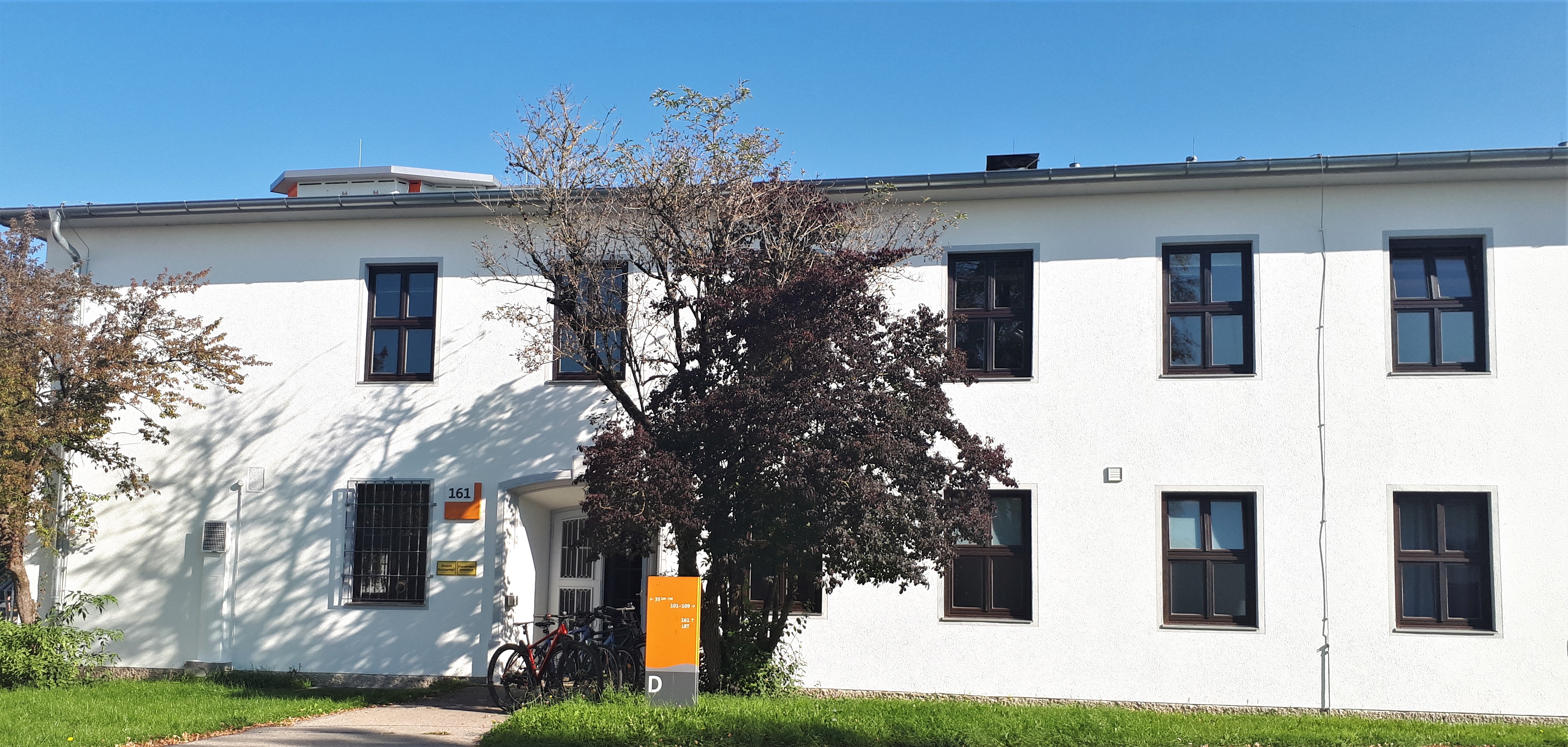Working with soldiers
originally written for gsnmunich.wordpress.com
I let my eyes wander along the front gate. The entrance to the University campus is closed and guarded. A sign reads ‘Military Security Area – Attention firearms use’. The atmosphere is freezing and the place seems empty. A grim-looking soldier greets me briefly: ‘Ausweis, bitte.’ So much for first impressions, huh?

In January 2018, after handing in my dissertation and about five months before my Ph.D. defense at the GSN, I started my new 3-year position at the General Psychology, Institute of Psychology at the University of the Bundeswehr Munich. The application process was rather straightforward: after evaluation of my standard written application, I was invited for an on-campus interview and around a week later, I received the email stating I got the position. That was in early November, so I had to hurry to complete at least the dissertation (contractual starting date was January). I aimed for completing the thesis at the end of December anyway, but suddenly it got ‘real’ for the first time. The last weeks of finalizing the manuscript were stressful, but I managed to submit on December 20th. It probably could have been a better thesis (does everyone think this?). However, later in May I successfully defended. Yay!
My position at the General Psychology chair is a crossover between postdoc and classical chair position. While there are teaching obligations, for me they are all limited to experimental practical courses (and co-advising on B.Sc. and M.Sc. theses). This means that while I have to deal with many students, the research itself is not cut short because that is most of what I do with them. The chair of the general psychology focuses on basic multitasking research (no applied research). To some extent, I am also continuing some visual search stuff I did at the LMU before. Since this October, we are exploring some more engaging tasks for our participants in addition to the more ‘boring’ classical multitasking paradigms. I enjoy the research a lot and since we are a young institute (founded in 2013), I get the chance to actively engage in the creative process. The general psychology lab has a great lab head and is well equipped with brand new sound-reduced chambers and the possibility to record EEG, ECG, EDA and eye movements. Later this year, we get TMS and augmented reality devices (super excited!).
The University is actually not located in Munich but situated directly southeast of Munich in the town of Neubiberg. The Institute of Psychology has now around 25-ish employees (incl. 8 professors) spread across all major sub-disciplines and is conveniently located in the middle of the large campus. It is great having everything on one campus! There is a cheap ‘mensa’ (currently ~3.30€, all food, drinks, coffee included), a slightly more expensive bistro and a restaurant. A gym is located right next to the psychology building and there’s a swimming pool in 5min walking distance. Check out the 360° campus navigation (click on Werkhalle/Kletterturm). In addition to the on-campus building, the Institue runs a psychotherapeutic clinic in the middle of Munich that is open to everyone.
Is it morally okay, though? Before my application interview, I had a small internal fight about whether working for the Bundeswehr is something I would morally want to do. I had the abstract feeling that it was weird, but was uncertain about what that meant for me. During the interview, I got surprised about how friendly, open and welcoming everyone was. There is no ‘secret military research’ involved and we are certainly not teaching psychological warfare or anything like that (I have no idea how to do that anyway). At the chair, we are doing only ordinary basic psychology research with no direct applications. Just basic science. So why does the University of the Bundeswehr run an Insitute of PSychology if there are no direct army-applicable gains from its research? I don’t know for certain but I guess a big aspect might be increasing the Bundeswehr’s popularity among women. While all researchers are civilian employees, the students are paid soldiers in training to become officers. You don’t really notice it in terms of demographics, though. We have around half male, half female students and they are probably in their early 20s (I don’t know the numbers in detail). They usually go to the University for four years after their initial first training year in the Bundeswehr. Afterward, leaving with a normal B.Sc. and M.Sc. in Psychology, they have to serve in the Bundeswehr for 7-ish years. They sometimes walk around in their uniform, but in the end, they turn out to be completely normal students. Oh, and I have never seen a firearm and probably never will, as they are enclosed in a separate area to which civilians do not have access.
So overall, I have zero issue with the position I am in. I like the job, my colleagues are all – without any exception – super friendly, we are a small institute and everything feels familiar. All of us go to lunch together at least once a week, we communicate a lot and help each other across all disciplines. In the end, that’s what counts, isn’t it?

